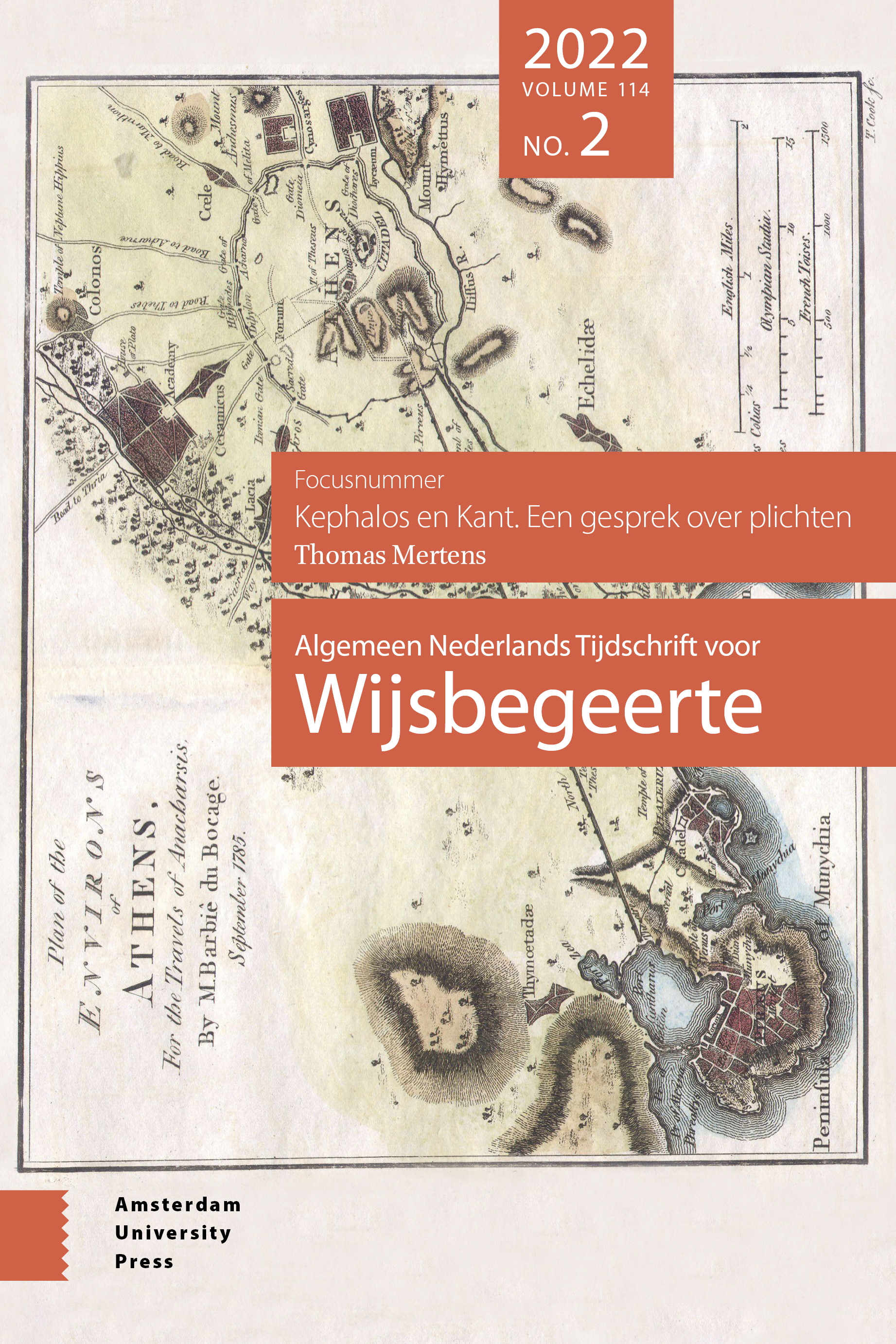-
oa Kephalos en Kant. Een gesprek over plichten
- Amsterdam University Press
- Source: Algemeen Nederlands Tijdschrift voor Wijsbegeerte, Volume 114, Issue 2, Jul 2022, p. 108 - 127
-
- 01 Jul 2022
Abstract
Cephalos and Kant. A conversation on duties
Socrates’s first conversational partner in Plato’s Politeia is Cephalos, the host of the dialogue. But the conversation between Cephalos and Socrates does not appear to be very fruitful. It merely seems to function as the setting of the stage. Nonetheless, what Cephalos has to say about life and old age, about justice and doing one’s duty is far from uninteresting. Indeed, if Cephalos had presented his views to Immanuel Kant, they would have been well received. Kant would have agreed with Cephalos’s emphasis on duties: the duty to speak truthfully; the duty of returning what one has borrowed from another and the duty of gratitude for what one has been given. Kant’s fictional conversation with Cephalos even presents us with some unexpected vistas.


